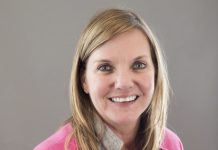Founder and CEO of Blink Taly Matiteyahu works two jobs. By day, she works as the product manager of Evisort. By night, she leads her own company, the audio-only blind dating app Blink.
Taly Matiteyahu got the idea for Blink after she “ate at one of the few blackout restaurants in the world” in 2012. The experience of sharing food with strangers in complete darkness inspired her to become an entrepreneur. She was able to create deeper connections with the people in her table because they could not see each other, freeing them from “looks-driven assumptions and self-consciousness.”
However, starting Blink as a non-technical founder was tough for Taly Matiteyahu. She also didn’t have a large budget to work with, plus she had to work a day job. The actual work in founding a company required “A LOT of hustling and learning through doing,” which she eventually completed.
For Blink, Taly Matiteyahu takes pride in building a “mission driven” company. She wants the app to let people “find real connections,” while “working to create spaces free of biases based on immutable characteristics.”
With Blink, Taly Matiteyahu believes they can “help people overcome implicit biases,” while admitting that they can’t “account for attraction between people.”
Taly Matiteyahu’s understanding and belief should allow Blink to help out “currently-underserved communities, such as Black women, Asian men, and people who don’t look like Idris Elba or Gal Gadot.”
Check out more interviews with dating visionaries here.
Blink has been a long time coming. Taly Matiteyahu, Blink
Jerome Knyszewski: Thank you so much for joining us in this interview series! Before we dive in, our readers would love to “get to know you” a bit better. Can you tell us a bit about your ‘backstory’ and how you got started?
Taly Matiteyahu: As a first-generation American, I grew up watching my parents work hard and overcome challenges. They each balanced multiple jobs (for some time, my mom balanced grad school on top of multiple jobs) while raising my brother and me without help from family or friends.
They instilled in me the sense that hard work begets success, but it doesn’t always guarantee it.
At a young age, I decided to become a lawyer. I worked hard throughout high school and undergrad to reach that goal, but soon after graduating from law school and starting a job at a law firm in 2015, I found myself craving a more dynamic and innovative environment.
In 2017, I left the stable career path that lay ahead of me as an attorney for a career in legal operations. Over the years in legal operations, I grew passionate about product development and eventually transitioned to work as a Product Manager at a legal tech company.
In my spare time, I’m constantly working on personal projects. In early 2020, I began working on Blink. When I first envisioned Blink, I planned to host live speed dating events where participants couldn’t see the other party during the dates and physical attraction would be accounted for via rating by email after the event.
Come March, COVID-19 hit and everyone was working from home, so I pivoted to audio-only, virtual blind speed dating… and the rest evolved from there!
Jerome Knyszewski: What was the “Aha Moment” that led to the idea for your current company? Can you share that story with us?
Taly Matiteyahu: Blink has been a long time coming. I’ve had the idea for Blink since 2012, when I ate at a blackout restaurant and befriended a couple I dined with. Making connections with strangers based on conversation alone, free of looks-driven assumptions, sparked the thought: would people date a wider variety of people and find more satisfying relationships if they were able to make an emotional connection with someone before swiping left? In 2020, I finally began turning the vision into reality and hope to change online dating’s looks-first paradigm and, one day, move the concept beyond the dating world.
At the end of the day, I know that any entrepreneurial journey is difficult at times, particularly for a woman without a background of privilege or wealth.
Jerome Knyszewski: Can you tell us a story about the hard times that you faced when you first started your journey? Did you ever consider giving up? Where did you get the drive to continue even though things were so hard?
Taly Matiteyahu: Getting Blink off the ground as a non-technical founder with a limited budget was the first hurdle. As I couldn’t build the app on my own, I had to invest the majority of the budget into app development. Now, as we focus on user acquisition, we have a much smaller budget to work with.
It’s been a perennial challenge — we need money to acquire users (as we need to spend money marketing), but we need users in order to prove the concept and raise money.
Sometimes I wonder if I should have explored the concept behind Blink in a less-crowded vertical where user acquisition is less competitive, but in those moments I remind myself that had I pursued those other paths first, I likely would have wondered whether I should have started in the dating vertical.
At the end of the day, I know that any entrepreneurial journey is difficult at times, particularly for a woman without a background of privilege or wealth.
I imagine it’s a combination of passion, excitement, and determination that keep me going in those hard moments… because when I think about how beautiful the world could be when we stop making assumptions about other people based on race, ethnicity, looks, name, and demographics, I can’t help but want to be an integral part of building and shaping that world.
Jerome Knyszewski: So, how are things going today? How did your grit and resilience lead to your eventual success?
Taly Matiteyahu: Right now, we’re building the beta group for Blink and preparing for a launch in Los Angeles. Our goal for expansion is currently geographically focused, so we plan to expand city by city across the United States.
We’re working hard on user acquisition through organic marketing, including direct engagement with potential members, participation in online communities, and blog content creation. While organic marketing yields a more engaged and authentic following, it is also time-consuming and requires consistency, patience, and resilience. The payoff is getting to hear people’s excitement about a new way to date.
In the high-demand, high-expectations dating market, branding can make or break a company.
Jerome Knyszewski: Can you share a story about the funniest mistake you made when you were first starting? Can you tell us what lessons or ‘takeaways’ you learned from that?
Taly Matiteyahu: In the high-demand, high-expectations dating market, branding can make or break a company. When I first founded the company, I didn’t have a name for the concept. One evening, it struck me — BLINK! The closed eye is a great metaphor for a blind date, and speed dates go by in the blink of an eye. How perfect, right? I moved full steam ahead, forming the LLC, purchasing a domain, designing our branding, among other things. It wasn’t until months later when I was Googling “Blink dating app” that I discovered there were at least two other, now-defunct dating apps called Blink. Lesson to other founders? Google your potential name before going full steam ahead!
At the end of the day, the most important thing is that you start. Taly Matiteyahu
Jerome Knyszewski: Ok super. Here is the main question of our interview. What are your “5 Things I Wish Someone Told Me Before I Began Leading My Company”? Please share a story or an example for each.
Taly Matiteyahu: Starting a company is a lot like having a baby — a lot of the times you have no idea what you’re doing, it keeps you up at night, and everyone will have an opinion on the right way to do something. But despite all of the uncertainty, stress, and unsolicited advice, you should trust your gut.
Trust your instincts. As a first-time, female founder, I regularly questioned myself and my decisions when I first started my company. Early on, I found myself doing things that didn’t feel right because I thought they were necessary in order to be taken seriously. Over time, I’ve learned to trust my instincts. If something feels wrong, it’s probably because it is.
Don’t let external pressure push you into doing something you’re uncomfortable with, whether it’s accepting investment from a VC that you have concerns about, making hard product decisions, or deciding who to hire.
And if you do fall into this trap and regret your choices later, don’t see those choices as failures, but as learning opportunities to grow from.
Get creative. Building a user base is hard and can be expensive if you focus on paid marketing or engage a publicity company. Get creative with marketing and take advantage of free tools to reach people — it will save you a lot of money and help you build a more engaged audience.
We’ve done this by creating content for our blog, building a podcast about online dating, and hosting virtual events for local groups. None of these avenues carries any direct monetary cost beyond time investment, and each allows us to connect with potential users.
Join communities. As much as the introvert in me doesn’t want to admit it, networks matter. Having connections and access to people with experience founding companies are huge advantages. Traditionally, access to these resources has been limited for women and minorities.
Luckily, I’ve found a variety of online communities to connect with other founders, ask questions, and generally find support. Elpha’s online community and the Friends of Lenny Slack workspace have been particularly great places for me to learn, connect with people, and brainstorm ideas.
Whether it’s a question about user testing, social media management, or data measurement tools, these communities have been incredible resources for me as I’ve navigated countless issues.
Engage a lawyer. Building a business is complicated. While it may seem easier to throw some paperwork together at first and worry about the details later, kicking the can down the road can be risky and you shouldn’t leave the legal security of your business to chance.
As much as it may hurt your wallet upfront, it’s worth it to find a good lawyer to help you get your corporate structure in order from the beginning. It will ultimately save you a ton of time, money, and headache down the road. I personally learned this lesson the hard way, thinking I didn’t need to worry too much about paperwork for a sapling of a company.
Within months, upon separating with my initial cofounder, I learned how important each provision and word of my operating agreement was.
Start on your own terms. While some may think it’s necessary for you to leave your job and invest all of your time into your startup in order for it to succeed, you can absolutely develop and test your idea without sacrificing your day job.
Balancing your startup with a full-time day job may mean a slightly longer ramp up to launch, but it will give you the security and a longer personal runaway to explore your concept. You can also use no-code tools to affordably build a prototype before investing substantial money in developing your concept.
I am still balancing a day job with Blink, working at a legal tech company by day and working on Blink in the evenings and on the weekends. It does mean a lot of screen time and little downtime, but it works far better for me than leaving my day job would have.
At the end of the day, the most important thing is that you start.
Jerome Knyszewski: How can our readers further follow you online?
Taly Matiteyahu: People can check out our website, Instagram, Twitter, and TikTok.
Jerome Knyszewski: This was very inspiring. Thank you so much for the time you spent with this!





